Bruce Been has had two heart attacks in two years. The 78-year-old stopped working in 2016 after a lung operation, when the doctor said it was too dangerous for him to return. He didn’t have insurance, and medical bills were more than $100,000. After he was cleared to work again, the company he was working for making stone statues was sold and he couldn’t find a job. No one was going to hire an old man. The money he did have was exhausted.
And that’s how Bruce Been became homeless.
Been was born in Turks and Caicos. He wants to return because “in the Islands, you can be 100 years old and always find work.” But he’s staying here because he says the doctors here are so much better. And he’s on track to collect 12 years of back pay for Social Security. He can’t do that without proper identification, but it’s been difficult since his possessions — including his ID — keep getting stolen.
The National Homeless Information Project and the Florida Coalition for the Homeless say Fort Lauderdale had 2,302 homeless people last year, some of them in shelters, some of them not. Even NHIP admits that figure might not be accurate because keeping track of all the homeless people in every area of the state isn’t easy.
Help for Fort Lauderdale’s homeless comes from a number of organizations. According to people who work helping the homeless, there’s increased coordination between organizations and more money available now than ever before. That’s not to say there’s enough. There’s also the changing nature of what homelessness is. Organizations now see more homeless families, as well as people who have jobs but still can’t afford a place to live. People who work with and advocate for the homeless don’t always agree on the best way to help, but in South Florida there’s agreement on one thing – the area’s lack of affordable housing doesn’t help.
Steve Werthman has been working in homeless services in some capacity for more than 30 years. Today he’s the vice president of operations for HOPE South Florida, a Christian-based nonprofit that helps homeless families and veterans get back into their own homes through case management and rapid rehousing.
“One of the biggest myths is that if you provide housing for homeless, you’ll attract more homeless,” Werthman says. “If every city has shelters and housing, there will be no need for people to travel for it.”
There’s no one reason why people become homeless.
“Homeless people are the ones that have fallen through the safety net,” Werthman says. “Florida is in the bottom of the 50 states for funding mental health per capita” — one reason that someone could end up homeless.
Werthman was working for Henderson Behavioral Health when he got a grant to do outreach for mentally ill homeless. At the same time, he volunteered for a faith-based group that was doing homeless youth outreach. Frustrated with the lack of services and the lack of coordination between services, he decided he could either quit or start a systematic change. So, he helped launch the Broward Coalition for the Homeless. That started a journey that eventually landed him at HOPE South Florida seven years ago.
He has seen some positive trends in that time. While he says the population demographics of homelessness haven’t changed that much, the main difference is that more of them are being sheltered rather than living on the street. When he first started out helping the homeless, about 60 percent of the local population was on the street, with 40 percent in shelters. Now, those figures have reversed.
“There are more resources now for the homeless than ever before,” Werthman says. “Solutions are there if people want to take advantage of them.”
Hot Housing Market, Cold Shoulder
Bruce Been has been taking advantage of whatever he can. After his stints at the hospital, he spent four months at Broward House for rehabilitation. Then came the Salvation Army for 60 days. Once his time was up, they let him go. Just like that.
He says he plays the lottery there: He enters a drawing for a seven-day stay. If he wins, he gets a place to sleep at night. If he loses, he goes to the library. The NHIP says there were 782 unsheltered homeless in Fort Lauderdale last year, but how can you count all the people you don’t see?
Lorraine Wilby, the CEO of TaskForce for Ending Homelessness, says her organization saw around 900 people on the street last year. The agency’s main goal is to get homeless people off the street, either into affordable housing, a shelter or an appropriate treatment facility. She says sometimes there just aren’t enough beds.
“We see an average of 65 unduplicated homeless clients every day,” Wilby says. “We get about 50 off the street on any given day. We leave another 15 out there because there just isn’t enough [space].”
Wilby, like Werthman, says South Florida lacks affordable housing.
“If you’re disabled and getting $900 a month [in disability payments], even with the best case manager, you’re not going to find something in Broward County where you can live off a $900 check each month,” she says. “Rent in a ratty place is $800. How can you eat, move around and live?”
The average rent in Fort Lauderdale for a one-bedroom apartment is $1,389, according to RENTCafe and apartment market firm Yardi Matrix. The city isn’t Broward’s most expensive; Pembroke Pines, Miramar, and Davie all average higher rents. It’s also not the cheapest: Average rent for the same one-bedroom in Lauderdale Lakes is $984 a month.
But Fort Lauderdale is the biggest city in Broward County. It’s where all the resources are. Unlike the western suburbs, the density and services mean it doesn’t take much for someone to get around from place to place for help.
Every morning, Wilby’s agency gets an email from the Broward Partnership’s Central Homeless Assistance Center, or HAC, with the number of open beds out of 230 that are there. Mike Long, the chief financial officer at HAC, says there just aren’t enough ways to serve everyone.
“There isn’t enough funding to deal with the homeless situation to get people off the streets and into homes,” he says. “The more development that happens, the less affordable housing is available.”
Long says there is a shortage of landlords that have reasonable rents in reasonable locations. Fort Lauderdale — and Broward County as a whole — can’t service all the residents who can’t afford to live here, even if they’ve lived here for years.
Friends, Co-Workers – Homeless
When Fred Scarbrough founded The Shepherd’s Way in 1995, Fort Lauderdale was getting worldwide attention for its “tent city.” At that time, it was the county’s way of responding to homelessness — providing cots under a tent in a parking lot in downtown Fort Lauderdale.
“We were the laughingstock of the world because people were saying we were inhumane for how the homeless were living,” Scarbrough says. “They were living at the library and the county was doing everything they could but didn’t have the resources.”
Today, Scarbrough says, there are still plenty of homeless people, but probably more families and children.
“One of the worst setups in the nation is a single mom with two or three kids,” he says. “The rental pool is small and the cost is high. She can’t afford to live and it puts [the family] into homelessness.”
The Shepherd’s Way morphed into HOPE South Florida in 2010, bringing together a multitude of partnerships across the county to end homelessness. HOPE emphasizes rapid rehousing: getting a family a place to live, paying for it for a short time, and working with the families to get back to work, child care, and paying their bills on their own. Scarbrough says a common misconception is that homeless people don’t work. They work, he says, they just can’t afford to live.
“The majority of them are working when they’re homeless and they’re absolutely miserable,” he says. “Women are scared they will lose their children so they’re hiding out.”
Miguel Lopez and his wife Stephanie go to work every day, but they don’t have a home to go to after that. They work in vacation sales, where their boss knows they’re homeless. “It’s commission-based,” Stephanie says. “A good week, we can make $200. A bad week… zero.”
They had a car, but it was stripped. Their only meal of the day is the one HOPE South Florida gives them at different churches each night. They each have three kids from previous relationships — Stephanie has all girls, Miguel has boys. None of their kids know they have a homeless parent. “We stay wherever we can lay our head,” Stephanie says. “[But] I want to be in a home where I can cook and sleep next to my husband.” Sometimes they sleep on the streets, but away from the library. They did it one night and that was enough for them to keep looking elsewhere.
“There’s a place we go that doesn’t have cameras,” Miguel says. “We leave at 6 a.m., before anyone gets there, and go to the beach to clean up. Then we get dressed and go to work.”
Helping people like Miguel and Stephanie can involve more than one organization working together. Scarbrough has envisioned that unity since he started his ministry work in 1995. Only recently has he started to see a change. He retired six months ago from a veterinary practice that his son took over.
“Retirement has freed me up to do more with HOPE,” he says. “Just in the last six months has that [original idea] come to fruition. We think we’ve turned a corner.”
But corners have bumps. The City of Fort Lauderdale has provided a couple of them. In 2014, the city passed an ordinance banning publicly feeding the homeless. After worldwide attention, protests and arrests, a judge reversed it, as it restricted charities and other groups from helping those in need.
In May of this year, the city raided an encampment in Stranahan Park. The Broward County chapter of the American Civil Liberties Union filed a lawsuit on behalf of the victims.
“[The] city came to the park with no advanced notice and destroyed private property. They trashed everyone’s belongings without warning,” says Alex Johnson, president of the Broward ACLU chapter. “I was shocked this occurred given that there are four pending lawsuits from the anti-feeding ordinances.” The case was filed in June. It’s currently in discovery. Johnson’s priority is prevention.
“The first goal would be to protect those unconstitutional things from happening again,” he says. “Hopefully the lawsuit will get the city to address the homeless problem more constructively instead of terrorizing them. It’s not solving the homelessness problem by taking what possessions they do have and throwing them away.”
At press time, the city had not responded to Fort Lauderdale Magazine’s requests for comment.
Lorraine Wilby from TaskForce for Ending Homelessness says she isn’t sure about how the city goes about some of its decisions.
“They have some good programs and then do some really nasty things,” she says. “I know they fund a feeding program to a small extent that provides meals every night, but if you have ordinances against feeding people in parks, you have to hope a) [the homeless] can live on one meal a day, and b) have the wherewithal to get to where that dinner is.”
A dinner helps. HOPE South Florida’s meal and housing services are helping hundreds of families get shelter and food, but there might be some nontraditional ways of getting homeless off the street. Around the country, new ideas are making a difference.
Kevin Adler started Miracle Messages in San Francisco in 2014. His uncle lived on and off the streets for 30 years. The company sets up homeless people with ways to send messages to their families. He admits it’s not the only solution, but “it’s our solution.”
“We believe in order to end homelessness it requires housing, but also community,” he says. “We have this [program] to say, ‘I love you, I miss you, I want to reconnect.’”
It might help. Steve Werthman says homeless people don’t have much social support.
“People are oftentimes very alone even if they have people they hang out with on the street,” Werthman says. “Many times, if there were any friends or relatives, they aren’t available to help now.”
Sometimes though, there are situations like Bruce Been’s. He keeps in regular contact with his family, but they don’t know about his homelessness. His phone got shut off so he makes his calls to any of his seven children at a place he simply calls “the corp.”
“I’ll call my kids and they think everything is OK,” Been says. “If they knew, they’d make me go back home so fast!”
His pride runs high. He finally got his birth certificate so he can get a new ID. Now he’s on track to getting his Social Security from the last 12 years. Every day he’s working to get healthy.
“Most days I try to recuperate and pray,” he says. “It’s hard because you can’t do anything without money.”






